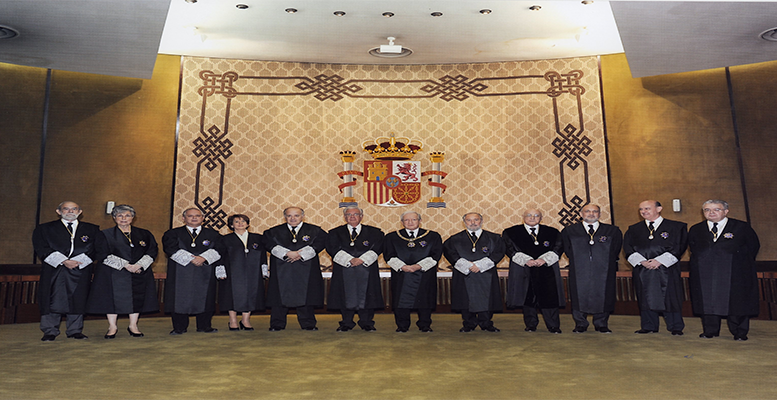In a scenario of unprecedented institutional crisis, the Constitutional Court agreed yesterday by a slim majority of its members (6 votes to 5) to paralyse the legal reform promoted by the Government parties in Parliament to change the functioning of both the General Council of the Judiciary and the High Court by express means.
This reform allowed the Government majority to reduce the 3/5 majority required until now to appoint the members of the General Council of the Judiciary and the Constitutional Court itself. It was introduced at the last minute as an amendment to another bill that has nothing to do with it – the one that does away with the crime of sedition and reduces the penalties for embezzlement, according to the PSOE’s agreement with ERC – and which can continue its parliamentary procedure.
The Constitutional Court understands that this way of legislating – by including as amendments “morcillas” that have nothing to do with the laws that are being processed – goes against the right of political participation of minorities, a right that must be protected. In fact, he already said the same thing in 2011, when the PSOE presented an appeal against a PP law.
But that does not stop the far left in the government from talking about a “soft coup” and interference in the legislative process. It seems that the parliamentary majority allows all procedures to be bypassed and the rights of minorities to be violated.
The government and the majority that supports it will be able to make the changes they want… when they process them in the right way. But this government’s tendency to legislate by means of urgency, with royal decrees, and to carry out all kinds of legislative botch-ups under the protection of its parliamentary majority has suffered a severe corrective.
So, by six votes to five, the Plenary of the Constitutional Court agreed to uphold the precautionary measure requested by the Popular parliamentary group. And, consequently, to halt the processing in the Senate of the two partial amendments introduced in the proposal for the express modification of the Penal Code to reform the Organic Law of the Judiciary and the Organic Law of the Constitutional Court.





